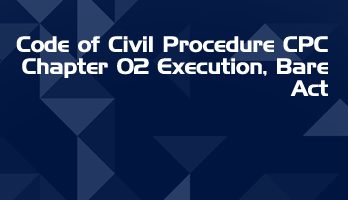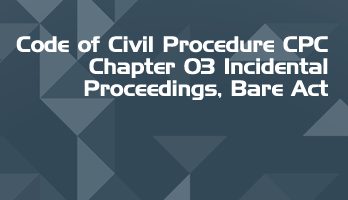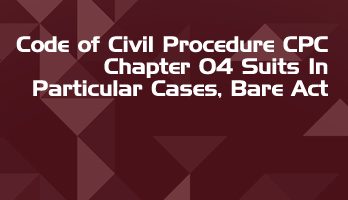A 'Bare act' is the actual legislation passed by the Parliament of India. Generally, an act sets out the high level legal and policy principles applicable to the subject matter of the law.
Most acts are accompanied by 'subsidiary legislation' such as rules, regulations, notifications and orders; which address the actual implementation detail of the act.
Free Full Course Available on LawMint's YouTube Channel
How to Land Your Dream LLB Internship in a Top Law Firm
- Part 1 - Introduction
- Part 2 - Internship Planning
- Part 3 - Internship Research
- Part 4 - Building Your Profile
- Part 5 - The Email
- Part 6 - The Resume
- Part 7 - The Cover Letter
- Part 8 - The Interview
- Part 9 - Self Development
Practical and comprehensive course, with real examples and step-by-step analysis of the complete internship application process. Check out LawMint's YouTube channel now!
The Indian Evidence Act, 1872
Preamble
WHEREAS it is expedient to consolidate, define and amend the law of Evidence, it is hereby enacted as follows –
Chapter 1 – Preliminary
Section 1 – Short title, extent and Commencement
This Act may be called the Indian Evidence Act, 1872.
It extends to the whole of India except the State of Jammu and Kashmir and applies to all judicial proceedings in or before any Court, including Courts – martial, other than Court – martial convened under the Army Act (44 & 45 Vict., c. 58) the Naval Discipline Act (29 & 30 Vict., c. 109) or *** the Indian Navy (Discipline) Act, 1934 (34 of 1934) or the Air Force Act (7 Gco. 5, c. 51) but not to affidavits presented to any Court or Officer, not to proceedings before an arbitrator;
And it shall come into force on the first day of September, 1872.
Section 2 – Repeal of enactments
Rep. by the Repealing Act, 1938 (1 of 1938) section 2 and Schedule
Section 3 – Interpretation clause
In this Act the following words and expressions are used in the following senses, unless a contrary intention appears from the context –
Court: Court includes all Judges and Magistrates, and all persons, except arbitrators, legally authorized to take evidence.
Fact: Fact means and includes –
- any thing, state of things, or relation of things, capable of being perceived by the senses;
- any mental condition of which any person is conscious.
Illustrations
- That there are certain objects arranged in a certain order in a certain place, is a fact.
- That a man heard or saw something, is a fact.
- That a man said certain words, is a fact.
- That a man holds a certain opinion, has a certain intention, acts in good faith or fraudulently, or uses a particular word in a particular sense, or is or was at a specified time conscious of a particular sensation, is a fact.
- That a man has a certain reputation, is a fact.
Relevant: One fact is said to be relevant to another when the one is connected with the other in any of the ways referred to in the provisions of this Act relating to the relevancy of facts.
Facts in issue: The expression facts in issue means and includes – any fact from which, either by itself or in connection with other facts, the existence, non – existence, nature or extent of any right, liability, or disability asserted or denied in any suit or proceeding, necessarily follows.
Explanations Whenever, under the provisions of the law for the time being in force relating to Civil Procedure, any Court records an issue of fact, the fact, to be asserted or denied in the answer to such issue is a fact in issue.
Illustrations A is accused of the murder of B. At his trial the following facts may be in issue –
- That A caused B’s death;
- That A intended to cause B’s death;
- That A had received grave and sudden provocation from B;
- That A at the time of doing the act which caused B’s death, was, by reason of unsoundness of mind incapable of knowing its nature.
Document: Document means any matter expressed or described upon any substance by means of letters, figures or marks, or by more than one of those means, intended to be used or which may be used for the purpose of recording that matter.
Illustrations
- A writing is a document;
- Words printed, lithographed or photographed are documents;
- A map or plan is a document;
- An inscription on a metal plate or stone is a document;
- A caricature is a document.
Evidence: Evidence means and includes –
- all statements which the Court permits or requires to be made before it by witnesses, in relation to matters of fact under inquiry; such statements are called oral evidence;
- all documents including electronic records produced for the inspection of the Court; such documents are called documentary evidence.
Proved: A fact is said to be proved when, after considering the matters before it, the Court either believes it to exist, or considers its existence so probable that a prudent man ought, under the circumstances of the particular case, to act upon the supposition that it exists.
Disproved: A fact is said to be disproved when, after considering the matters before it, the Court either believes that it does not exist, or considers its non – existence so probable that a prudent man ought, under the circumstances of the particular case, to act upon the supposition that it does not exist.
Not proved: A fact is said to be not proved when it is neither proved nor disproved.
India: India means the territory of India excluding the State of Jammu and Kashmir.
The expressions Certifying Authority, digital signature, Digital Signature Certificate, electronic form, electronic records, information, secure electronic record, secure digital signature and subscriber shall have the meanings respectively assigned to them in the Information Technology Act, 2000.
Section 4 – Presumption and Proof
May presume: Whenever it is proved by this Act that Court may presume a fact, it may either regard such fact as proved, unless and until it is disproved, or may call for proof of it.
Shall presume: whenever it is directed by this Act that the Court shall presume a fact, it shall regard such fact as proved, unless and until it is disproved.
Conclusive proof: When one fact is declared by this Act to be conclusive proof of another, the Court shall, on proof of the one fact, regard the other as proved, and shall not allow evidence to be given for the purpose of disproving it.
Important Central Acts in Regional Languages
Legislative department website also features regional language versions of several important Central Acts.
Free Full Course Available on LawMint's YouTube Channel
How to Land Your Dream LLB Internship in a Top Law Firm
- Part 1 - Introduction
- Part 2 - Internship Planning
- Part 3 - Internship Research
- Part 4 - Building Your Profile
- Part 5 - The Email
- Part 6 - The Resume
- Part 7 - The Cover Letter
- Part 8 - The Interview
- Part 9 - Self Development
Practical and comprehensive course, with real examples and step-by-step analysis of the complete internship application process. Check out LawMint's YouTube channel now!












